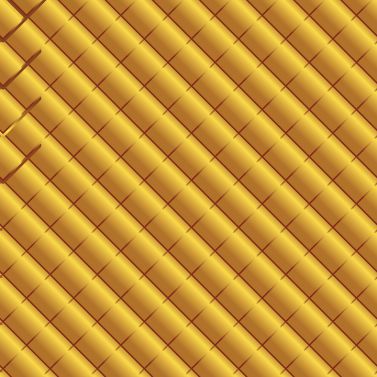Use of gold is quite widespread for plating purposes due to its superior properties as a coating material. Gold coating can be achieved through different processes such as electroplating, use of chemical agents, or immersion plating method. The kind of plating process to use depends on the application and for achieving the coating with different properties.
Gold plating can be expensive than other types of metal coatings available. But there are several benefits of using gold as the plating material. The actual quality of the coating will depend on the expertise of the gold plating service provider.

To understand the significance of the expertise required for the gold-plating process, it can help to know the precision required for it.
The Gold Plating Process
The gold-plating process begins with cleaning the substrates with chemicals to remove all surface impurities. If the substrates are not cleaned properly, it can affect the quality of the coating. For some substrates, an additional coating of copper or nickel is first used. If the substrate is coated with chrome, it needs to be removed to plate it with gold. These steps are part of the pretreatment stage prior to the plating process.
Due to its stability as a metal, it requires efforts to create solutions to help the metal dissociate for the formation of ions. Gold plating service providers may use their proprietary formulations to create the right solution. Cyanide and sulfites are usually used for the formulations.
Electric current is used to transfer gold onto the substrates. The acids in the solution need to be balanced so that hydrogen cyanide doesn’t form. Depending on the application, additives such as iron or nickel are used during the gold plating process. These are added into the solution itself.
Here are the benefits of gold plating.
Excellent Protection from Corrosion
Gold offers excellent protection from corrosion to the metal substrates. With its corrosion-resistant properties, gold coating helps to extend the life of the substrate. Gold is resistant to the effects of moisture and doesn’t rust at all. It doesn’t react at all with oxygen. No other metal is as non-reactive to oxygen as gold. So, any metal plated with gold has no risk from rust at all.
It can be also used to provide an additional layer of protection when used as a coating on nickel or copper. It won’t affect the properties of the substrates. But it will offer more protection from rust without weight the substrate down.
Superior Electricity Conductor
Gold is a superior conductor of electricity. It is non-reactive to elements. So, gold coating doesn’t affect the performance of the electrical transmission. In applications where you need no errors or loss of electric current, use of gold as a coating material can be quite beneficial. Gold plating can help electronics perform better by improving their conductive properties.
Gold plating is widely used in switches, connectors, and transistors. Battery connectors in cell phones most often contain contacts coated with gold. Even computers contain connectors plated with gold. Its use in electronics has been on the rise especially new automated electrical devices.
Malleable
Due to gold’s malleability, it is easy to use it over other metals. It can be used for strengthening metals like nickel. The layers of gold can be thin. But adding more thickness is also possible.
Aesthetic Appeal
Gold is used for coating silver or copper jewelry and artifacts. It can be used on jewelry and items made of any metals for that matter. Gold plating lends a shine to any metal to increase its value. Silver is extremely prone to tarnish. With the help of gold plating, you can protect any silver item from oxidative damage.
Biocompatibility
Gold’s property of biocompatibility has made it a very popular metal to use for medical purposes. Gold-plated stents are quite widespread in use. Gold-plated components are also used for inner-ear implants and many other medical devices. Gold is resistant to germs. So, its use for medical devices is quite beneficial. It is also used in dental implants; often with other metals like silver.
If you have the budget for gold plating then it can be really beneficial for businesses to opt for it.